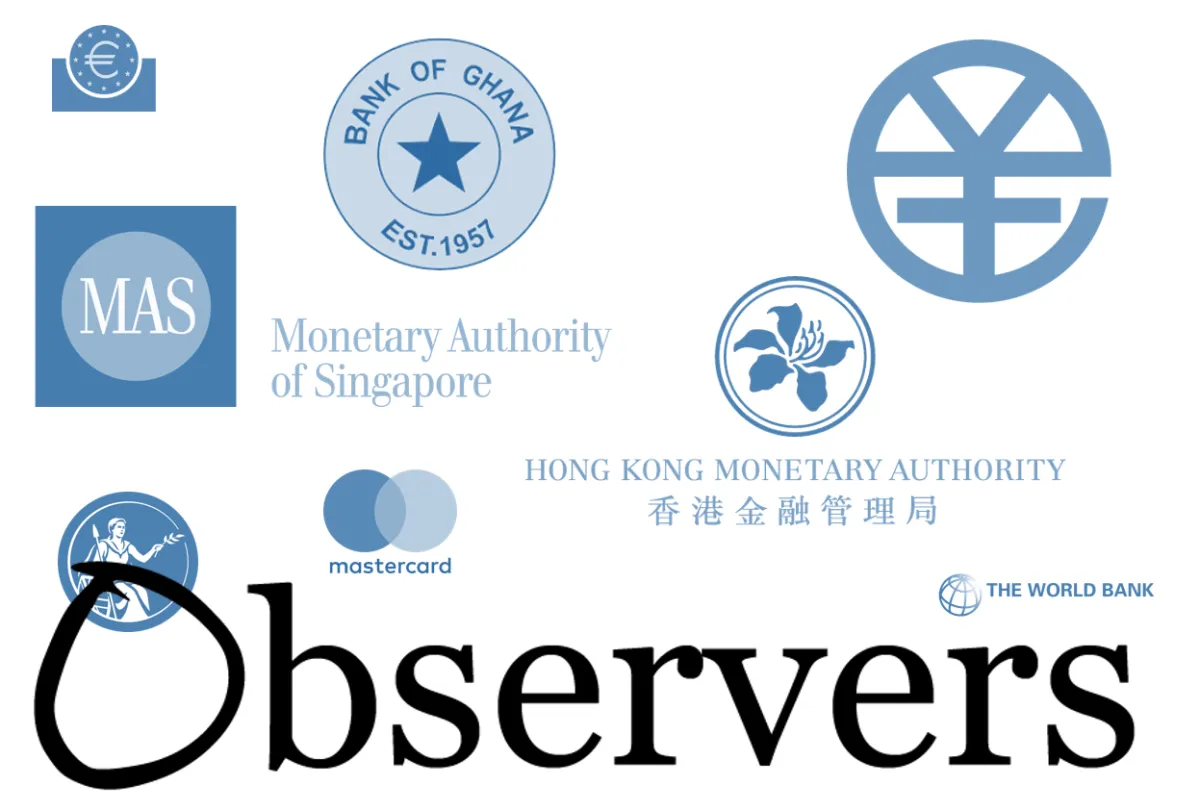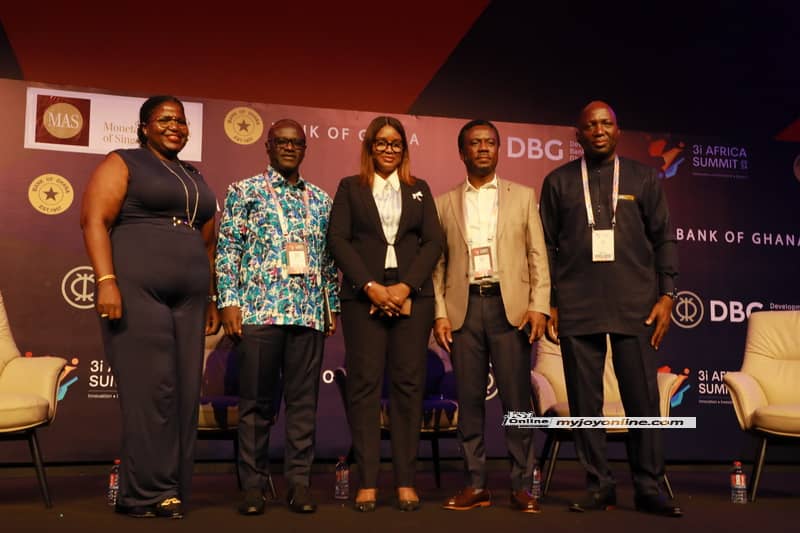
For all the key details of new Distributed Ledger Technology (DLT) projects in the banking world, real-world asset (RWA) tokenization, stablecoins, and central bank digital currency (CBDC) updates, the Observers 'Banking and CBDC Roundup' has you covered.
CBDC Updates
We begin in Ghana, at the 3i Africa Summit, where the Central Bank of Ghana (BOG) and their counterparts from Singapore (MAS) announced a successful milestone in their Digital Economy Semi-Fungible Token (DESFT) project. The project is part of broader cooperation between the two countries aimed at the facilitation of trade, in particular, at the level of small and medium enterprises.

DESFT employs the whole spectrum of modern moneytech to come up with this unique instrument: recently piloted Ghana CBDC eCedi, xSGD stablecoin, Universal Trusted Credentials developed by UNDP and MAS, and Purpose Bound Money protocol also developed by MAS.
Also announced as a major cross-border expansion, China e-CNY has been made available to Hong Kong citizens this week. Now they will be able to use e-CNY for cross-border payments as well as instantly top-up e-CNY wallets from their bank account, made possible by integration of e-CNY with Hong Kong's local RTGS system.

Meanwhile, there was an awkward report about the mainland's use of digital yuan in the South China Morning Post. While Beijing has begun paying some workers using this CBDC, it appears many early adopters are opting to convert it into cash as soon as possible. One employee at a state-owned bank, Sammy Lin, explained:
"I prefer not to keep the money in the e-CNY app, because there's no interest if I leave it there. There are also not so many places, online or offline, where I can use the e-yuan."
Other concerns noted in the SCMP report include privacy, with consumers "reluctant" to embrace the e-CNY as a result.
Over in Washington, U.S., it's been announced that the World Bank has priced a digital bond using the Swiss franc's wholesale CBDC. It's a seven-year bond worth about $221 million, and is the largest such issuance since 2009.
This has been achieved through a partnership with the Swiss National Bank and the SIX Digital Exchange, and it's been described as a "triumph" for the World Bank. Vice president and treasurer Jorge Familiar said:
"We are grateful for the opportunity to issue the first CHF digital bond as an international issuer. This achievement marks another significant step in the World Bank's commitment to increasing capital markets' efficiency through digitalization in partnership with central banks and central securities depositories."

Other CBDC developments around the world include:
- The Bank of England assessing the feasibility of using existing point-of-sale terminals for the digital pound. The study answers that terminals can handle the transactions without any modification.
- The Bank of Kazakhstan also taping the existing card infrastructure for its retail CBDC. -This week the participant banks issued virtual and plastic CBDC cards that can be used across Mastercard and Visa global networks, for cash withdrawals at ATMs, and linked to Google, Apple and Samsung Pay services
- Wholesale digital euro settlement experiment, carried out by Oesterreichische Nationalbank. It covered the tokenization and simulated delivery-versus-payment (DvP) settlement of government bonds in a secondary market transaction against central bank money.
Tokenization Updates
In tokenization developments, Mastercard and Standard Chartered in Hong Kong have teamed up for a successful proof-of-concept pilot centered on tokenized deposits and carbon credits through a regulatory sandbox. Both companies are clearly bullish on the prospect of this technology. SCBHK's CEO Mary Huen said it is "integral to the future of the financial industry." Meanwhile, Mastercard's local managing director Helena Chen declared:
“To unlock the full potential of blockchain technology, continuous collaboration, testing, exploration, and development of innovative use cases are needed to bring real value to businesses and interoperability across the industry."
Deutsche Bank has also joined Project Guardian — an initiative led by the Monetary Authority of Singapore — which aims to "test the feasibility of asset tokenization applications in regulated financial markets." Executives say this is an attempt to anticipate client needs as well as exceed them, and enhance competitiveness.
Both efforts will be music to their ears of S&P Global Rankings, which is urging asset managers to ramp up their efforts with tokenization. Arguing this nascent technology can benefit issuers and investors alike, its report says:
"Tokenization can help investors manage their liquidity in two ways. First, it can provide them with round-the-clock access to liquidity on-chain. Second, they can use their tokens as liquid collateral rather than needing to redeem, thus reducing the risk of a run on the fund."
While the authors note that regulatory challenges have inhibited adoption so far, they believe tokenized treasuries in particular "demonstrate a use case for public blockchains in traditional financial markets."

